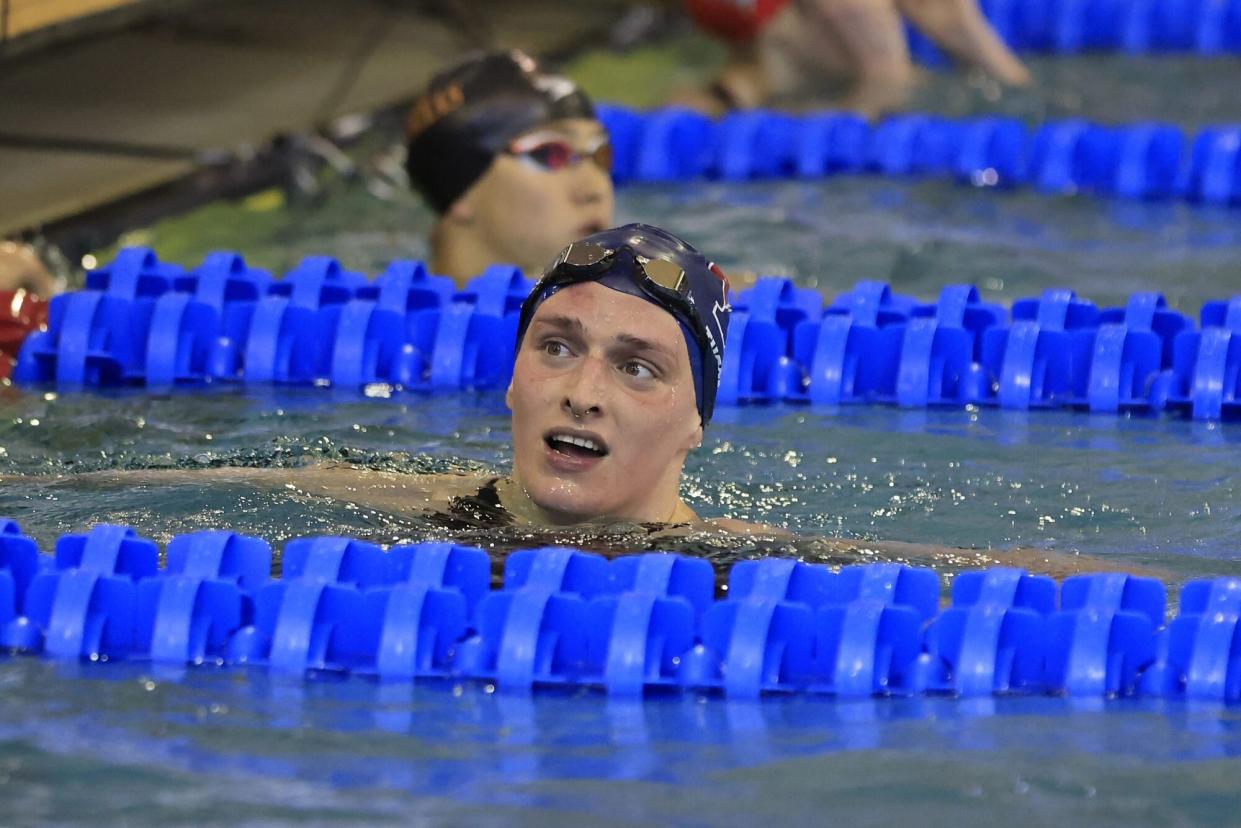World Swimming Votes to Restrict Transgender Athletes from Competing in Women's Events

- Oops!Something went wrong.Please try again later.
Justin Casterline/Getty Lia Thomas
Swimming's world governing body, FINA, has voted in support of a new policy that will restrict most transgender athletes from competing in elite women's aquatics competitions.
A press release from the organization said that FINA member federations voted 71.5 percent in favor of the new policy, ESPN reported.
The policy, which is said to go into effect Monday, says that transgender women will only be eligible to participate in "FINA competitions and set FINA World Records in the women's category" if they "have not experienced any part of male puberty beyond Tanner Stage 2 or before age 12, whichever is later."
RELATED: Swimmer Lia Thomas, Who Is Transgender, Opens Up About Criticism: 'I Transitioned to Be Happy
"This is not saying that people are encouraged to transition by the age of 12. It's what the scientists are saying, that if you transition after the start of puberty, you have an advantage, which is unfair," James Pearce, the spokesperson for FINA president Husain Al-Musallam, told The Associated Press. "They're not saying everyone should transition by age 11; that's ridiculous. You can't transition by that age in most countries, and hopefully you wouldn't be encouraged to. Basically, what they're saying is that it is not feasible for people who have transitioned to compete without having an advantage."
FINA did not immediately respond to PEOPLE's request for comment.

Rich von Biberstein/Icon Sportswire via Getty Counter-protestors gather to support transgender swimmer Lia Thomas at the NCAA Swimming and Diving Championships on March 17th, 2022.
FINA's "deeply discriminatory, harmful, unscientific" new policy is "not in line with (the International Olympic Committee's) framework on fairness, inclusion and non-discrimination on the basis of gender identity and sex variations," Anne Lieberman of Athlete Ally, a nonprofit that advocates for LGBTQ athletes, said in a statement obtained by USA Today.
"The eligibility criteria for the women's category as it is laid out in the policy (will) police the bodies of all women, and will not be enforceable without seriously violating the privacy and human rights of any athlete looking to compete in the women's category," Lieberman said.
In the press release, the organization explained that there are proposals for an open competition category included within the new policy. They said a new working group will be established and spend the next six months "looking at the most effective ways to set up this new category."
"Athletes who do not meet the applicable criteria for the men's category or the women's category may compete in any open events that FINA may develop in the future," the organization wrote as part of the 24-page new policy. "FINA will begin work following the final promulgation of this Policy to determine the feasibility of establishing an open category in Aquatics sport disciplines, in which an athlete who meets the eligibility criteria for that event would be able to compete without regard to their sex, their legal gender, or their gender identity."
RELATED: Carolina Panthers' Justine Lindsay on Being the NFL's First Openly Transgender Cheerleader
According to ESPN, these new regulations will have a big impact on University of Pennsylvania swimmer Lia Thomas, who became the first the openly transgender woman to win a NCAA Division I women's swimming title earlier this year.
ESPN reported that in response to the policy, Thomas said, "The new FINA release is deeply upsetting. It is discriminatory and will only serve to harm all women."

